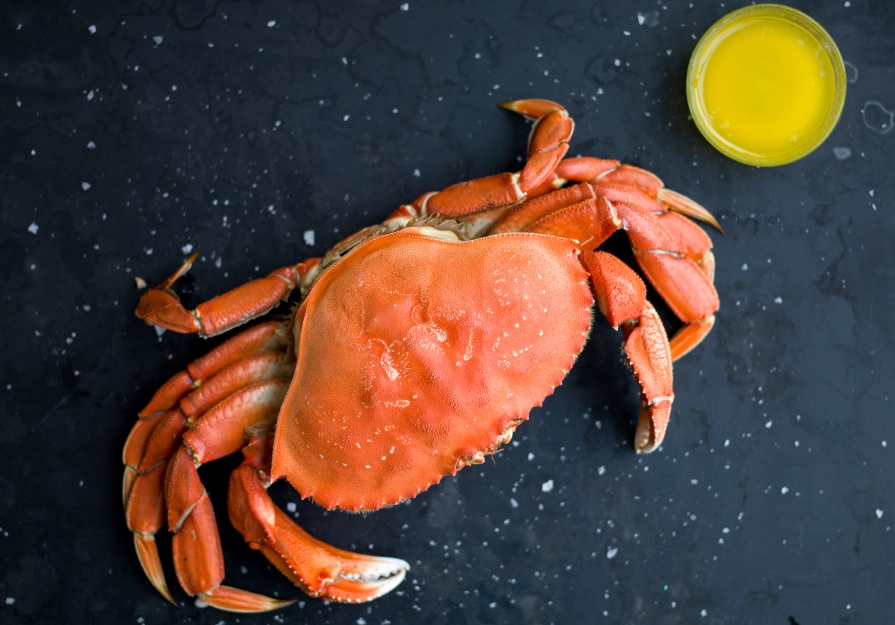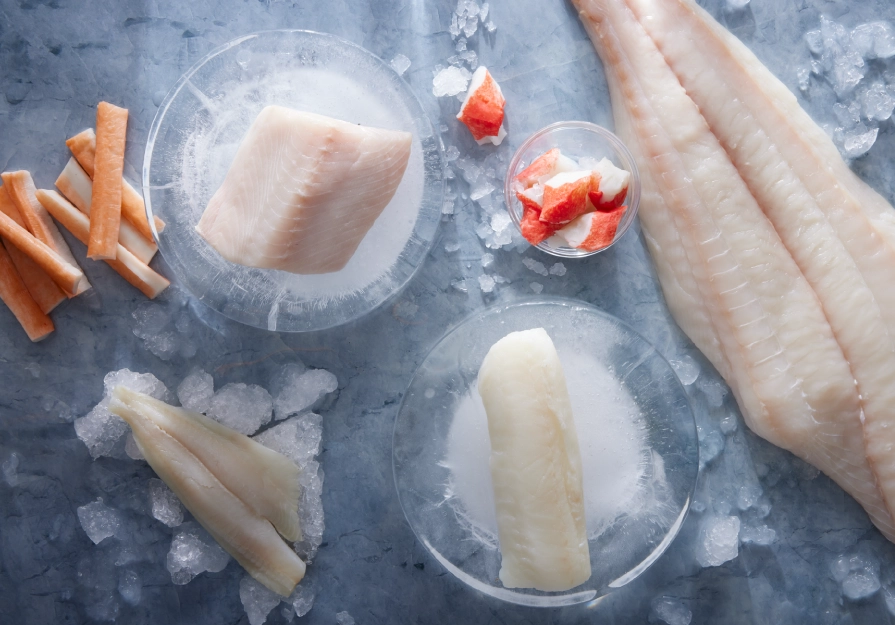HEALTH AND NUTRITION
Benefits of Wild Alaska Seafood
Wild-caught Alaska salmon, whitefish varieties, and shellfish mature at a natural pace, and swim freely in the pristine waters off Alaska’s rugged 34,000-mile coastline.
Alaska is thousands of miles away from large sources of pollution that can contaminate the human food supply in other parts of the world. These distances, combined with the Earth’s patterns of circulation of water and air, help to ensure that Alaska’s own waters are among the cleanest in the world. Alaska’s human population density is among the lowest of any in the United States, and lower than most places in the world. Alaska’s marine habitats are extremely clean, and Alaska’s seafood is pure and remarkably free of contamination by pesticides, petroleum derivatives, PCBs, metals, and bacteria.
The nutritional benefits of Alaska seafood can – and, in fact, do – fill volumes. In addition to providing an excellent source of high-quality protein that’s low in saturated fat, Alaska seafood is rich in many essential vitamins and minerals. Alaska seafood is “smart for the heart.” Traditional Asian, Mediterranean, and Greenland Eskimo diets are rich in seafood. These populations have a discernably lower incidence of cardiovascular disease. The average life expectancy in Japan – where seafood is a major part of the diet – is 79. Alaska salmon, for example, offers exceptional nutrition. Its high concentrations of omega-3 oils are proven to substantially reduce the risk of coronary disease. Omega-3s have also proven to be beneficial in the treatment and prevention of many other diseases.

Omega-3 Fatty Acids
One of the most important components of human nutrition are omega-3 fatty acids. They are vital for health of the nervous system, cognitive function, health of the eyes, cell receptor function, and maintaining a healthy inflammatory response. Unfortunately, a huge percentage of us are not getting enough of the important long-chain omega-3 fatty acids, EPA and DHA, that are responsible for many of these benefits. This is because so few of us regularly eat seafood. Nutritionists recommend that we eat high quality seafood 3-4 times per week to get regular supplies of these vital fats.
Vitamins
Wild Alaska seafood contains vitamins E, C, D, and A.
Vitamin E
Benefits include balancing cholesterol (it acts as a protective antioxidant that fights against cholesterol oxidation and damage to the body). Vitamin E is also important for repairing skin – strengthening the capillary walls, acting as a natural anti-ageing nutrient, as well as decreasing signs of acne and eczema due to the vitamin being absorbed by the epidermis layer. It also is known to thicken hair.
Vitamin C
This vitamin is needed for the maintenance and protection of cells. It helps prevent the DNA in the skin from reacting with sunlight and causing discoloration or even precancerous cells. The body also uses vitamin C to help heal injuries to the skin and aids hair growth.
Vitamin D
Research has shown that vitamin D may play an important role in regulating mood swings and warding off depression.
Vitamin A
This vitamin is crucial for good vision. Vitamin A is part of the rhodopsin molecule, which is activated when light shines on the retina and it sends a signal to the brain, which results in vision.


Minerals
Wild Alaska seafood also contains the minerals zinc, iron, selenium, and calcium.
Zinc
Increases immunity and fights the common cold and other illnesses. Zinc can interfere with the molecular process, exerting an antiviral effect by attaching itself to receptors in the nasal epithelial cells and fighting illnesses. It is also great for supporting liver health, digestion, and it plays a very important role in fertility.
Iron
Is known to make the skin glow. A lack of iron causes hemoglobin levels to decrease, resulting in the subsequent reduction of red blood cells. A dose of iron can prevent this from happening.
Selenium
This micro mineral is used by our cells to create enzymes that help clear waste products and it also helps protect our DNA from damage.
Calcium
Canned salmon in particular contains high levels of calcium. The body needs calcium to build and maintain strong bones. It also helps with cardiac muscle protection, weight management, the prevention of kidney stones, and dental care.
